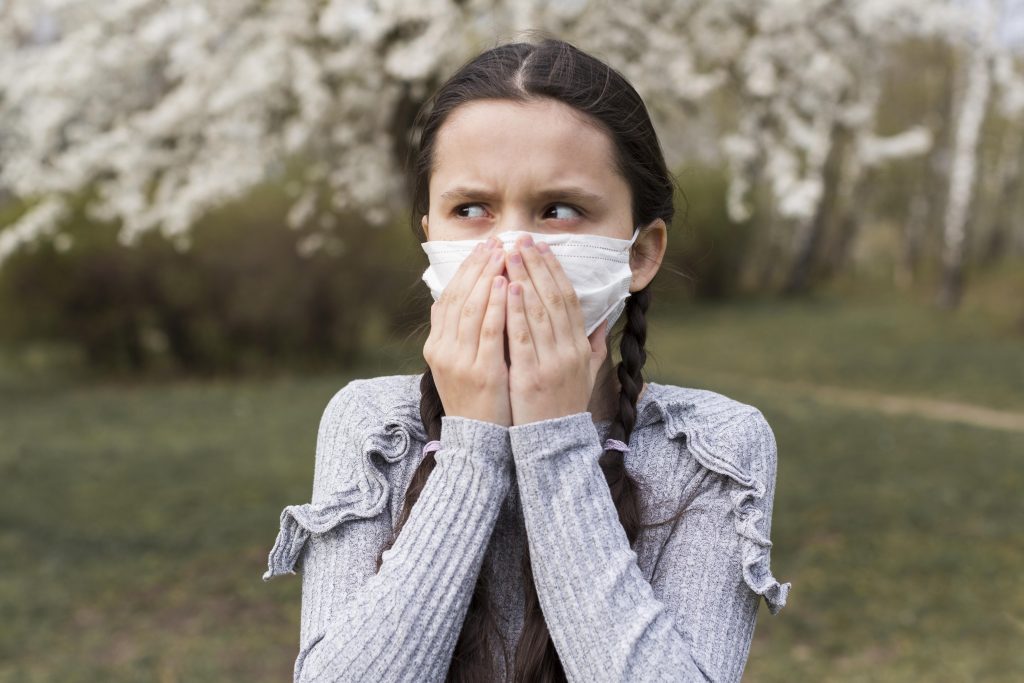Yes, hay fever can affect your teeth. While many people think of sneezing, itchy eyes, and nasal congestion when they consider the symptoms of hay fever, it can also cause discomfort and pain in your teeth and gums. Hay fever is a type of allergy that occurs in response to pollen, and it can cause inflammation throughout your body, including in your mouth. If you experience tooth pain during allergy season, it’s important to understand how allergies affect your oral health so you can treat tooth pain and avoid further oral issues.
Hay Fever Can Lead to Tooth Pain in The Following Ways
Sinus Pressure
Hay fever can cause sinus pressure, leading to tooth pain. The sinuses are air-filled spaces in your skull, and they are located around your nasal cavity. When you have hay fever, your sinuses become inflamed, which causes pressure and pain in your teeth. The maxillary sinuses, located above your upper back teeth, are the sinuses most commonly associated with tooth pain from hay fever. When these sinuses are congested, they can put pressure on the roots of these teeth, causing a dull ache or tenderness in these teeth. Many people mistake this pain for a toothache, but it is typically a result of sinus inflammation rather than a dental issue.
Referred Pain
The phenomenon of “referred pain” helps explain why sinus pressure feels like tooth pain. In short, referred pain is when pain from one area of the body shows up in another. The nerves that serve your sinuses are connected to the nerves of your upper teeth. So when hay fever results in sinus pressure, it’s not difficult to mistake it for tooth pain.
Sensitive Teeth
Hay fever may also leave your teeth more sensitive than normal. Allergies can worsen the reaction you get to hot, cold, sweet, or acidic foods even if your teeth are healthy. If you have sensitive teeth as a result of hay fever, this sensitivity should eventually go away as your other symptoms are taken care of.
Dry Mouth
Hay fever-related congestion makes it hard to breathe through your nose. So you may find yourself breathing through your mouth more often. Mouth breathing can dry out the mouth. Also, many allergy medications, like antihistamines, have a drying effect and decrease saliva production. Saliva helps keep your mouth healthy by washing away food debris and neutralizing acids and fighting bacteria. When there isn’t enough saliva in the mouth, your oral health can suffer.
Increased Cavity Risk
Allergies and medications can also cause dry mouth, increasing the risk of cavities. Saliva helps wash away bacteria and neutralize acids, but with less saliva, these substances build up, eating away at enamel. Cavities and other dental problems can develop over time.
Bad Breath
Dry mouth can also cause bad breath, or halitosis, another common and often-overlooked hay fever side effect. Keeping your mouth moist is key to preventing bad breath.
What You Can Do
Relieve Sinus Pressure
The first step to easing tooth pain from hay fever is relieving sinus congestion. OTC antihistamines and saline nasal sprays can reduce inflammation and mucus production in your sinuses, relieving the pressure on your upper teeth.
Drink More Water
Drinking plenty of water is key to fighting dry mouth and boosting saliva production. Chewing sugar-free gum or using an oral moisturizer can also help keep your mouth hydrated.
Keep up with Oral Hygiene
It’s also important to stick to your usual oral hygiene routine, even during allergy season. Brush at least twice a day, floss daily, and clean your tongue to keep cavity-causing bacteria and bad breath at bay.
Visit a Dentist
If your tooth pain continues despite doing your best to keep allergies in check, it’s time to visit a dentist. Pain that doesn’t go away may be a sign that you have an underlying dental issue, such as a cavity, infection, or gum disease, that requires professional treatment.
Hay fever is more than just an annoying runny nose and itchy eyes. Allergies can also have an impact on your teeth and overall oral health. It’s important to be aware of how symptoms like sinus headaches, dry mouth, and increased risk of cavities can affect your dental health. Managing sinus congestion, keeping hydrated, and practicing good oral hygiene can help alleviate these issues. If you experience persistent dental pain or discomfort, make an appointment with your dentist to have it checked.

